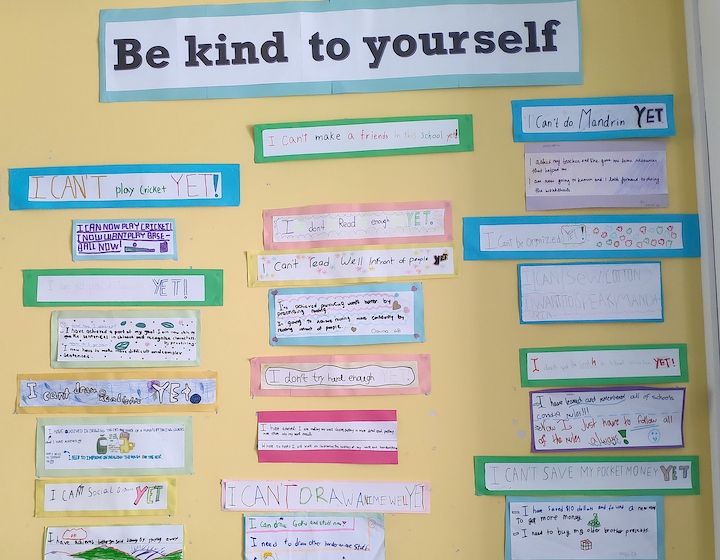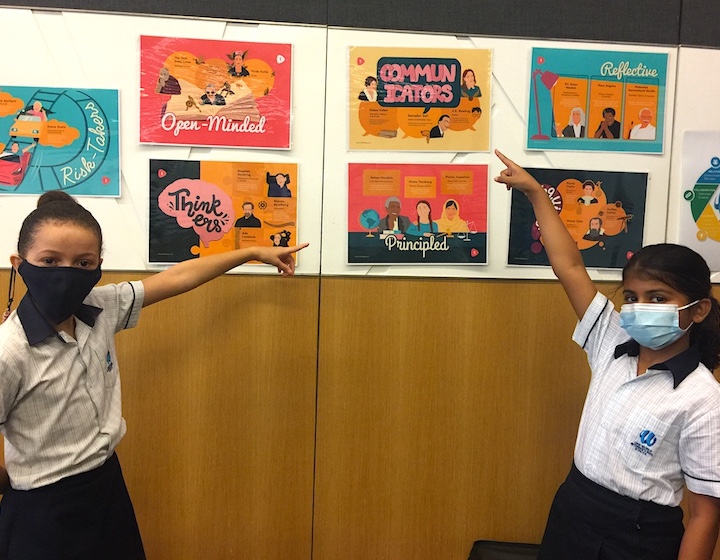

Does your child have a fixed or growth mindset? Will they give up easily or keep trying? Their degree of resilience is usually set during early childhood so isn’t it vital to know how to encourage positivity and a ‘can do attitude’? Here’s how!
Remember the last time you felt like giving up? It’s not a good feeling, and no one wants to be in this position. Still, some tasks simply feel like they’re beyond our skill sets or too far out of our comfort zones. It becomes easier to quit trying than persevere, and we typically base this decision on mindset.
Most of us approach life with either a fixed mindset or a growth mindset or often a mixture of both. One limits us in how far we can go, and the other propels us onward to great achievement. Not surprisingly, it’s during our early childhood years that we usually decide which path we’ll take. For this reason, it’s vital to encourage positivity and a growth mindset in children while they’re still young.
The Role of Language in Nurturing the Growth Mindset


Simply put, the best and most effective method for encouraging a growth mindset is to place more emphasis on effort and less on perfection. Teachers and parents who give positive feedback for effort inspire children to keep trying. How they do this – the language they use is important, too. Positive language examples include phrases that reward students for trying:
- “I love how you didn’t give up.”
- “Mistakes make you smarter.”
- “Great effort on this.”
- “The harder you try, the smarter you become.”
- “Mistakes just make your brain bigger.”
- “If it’s not hard, you’re not learning anything.”
- “You can accomplish anything through hard work.”
- “I’m so proud that you kept trying.”
When adults use positive language that uplifts instead of tears down, students benefit in multiple ways:
- First, they become motivated to do more.
- Second, they learn to trust that parents, teachers and faculty have their best interests at heart.
- Third, they develop confidence and trust in their abilities.
- Fourth, maybe most importantly, they learn to model the same, uplifting behaviour to others.
If you think back to the teachers and professors who had the most influence on your formative years, you’ll likely find they were the ones who encouraged you. They may have pressed you to work harder or do better, but it was done with kindness. You inherently knew why they gave you the advice they did, and it made you want to perform better as a result. It’s the same with young students today. Positivity and language mean much more than we realise. This is why it’s important to choose words wisely, especially when offering feedback to young minds. For example — using the word “yet.”
Perhaps the most powerful way to encourage a positive mindset is by using “yet”
When a student becomes frustrated because they can’t do something that’s too hard, a reply of “You mean you can’t do it, YET.” makes all the difference. This leaves the door open to try again and takes the pressure off the student to perform. The word “yet” is a beautiful bandage for an emotional wound, and more than one student has been healed by it.
How One World International School Fosters the Growth Mindset


One World International School (OWIS) in Singapore has a reputation for kindness-driven learning in an environment of positivity. And now their new campus at Suntec offers the same distinct advantages. The inquiry-led curriculum at both campuses sparks interest in expanding the boundaries of knowledge. The experience of the educator comes into play as well.
The teachers at OWIS nurture a growth mindset through kindness, positivity and genuine feedback that’s both constructive and motivational. In addition, they place the utmost importance on keeping open and inquisitive minds by checking and rechecking their approaches to problems and challenges. This, in turn, gives students something to model in their own practices. They embrace learning in many other ways as well, including the following:
Process Praise: Praise is important for young learners, but too many classrooms give praise only to students who strive for perfection. In the OWIS classroom, all effort is worthy of praise. Progress is always more important than perfection, and when children understand that their efforts mean something, they become more motivated to keep trying.
Classroom Signage: You can’t fault the power of positivity, which is why OWIS classrooms and learning spaces are decorated with words and phrases that encourage a growth mindset. OWIS believes in a diverse, kind and immersive learning community, and they want their hallways and classrooms to reflect the same.
Sentence Stems: Sentence stems, like the examples for positive language mentioned above, encourage learning to happen by giving students a structure to use in expressing their thoughts. Teachers at OWIS encourage this line of thinking in every lesson.
If children start to express their belief in themselves as a matter of habit – through phrases like “I am proud of myself because…”, “I would like to find out more about…”; or “I want to get better at…” – they induce a natural shift in their mindset and this gradually encourages them to be adventurous and step out of their comfort zones.
If you’re searching for a student-centric international school in Singapore that helps your child develop a growth mindset, consider One World International School. The school offers two campuses so you can find a location that suits you – one is an Early Childhood to Grade 12 all-through campus at Nanyang and the other is a Kindergarten to Grade 5 campus at Suntec, right in the city centre.
To learn more, get in touch with the friendly admissions team or join a virtual tour for OWIS Nanyang or a virtual open house for OWIS Suntec.
OWIS Nanyang Campus, Tel: +65 6914 6700, Email: [email protected], 21 Jurong West Street 81, Singapore 649075
OWIS Suntec Campus, Tel: +65 69147240, Email: [email protected], 1 Raffles Blvd, Suntec City, Level 3, Singapore 039593
www.owis.org






 View All
View All





 View All
View All







 View All
View All




